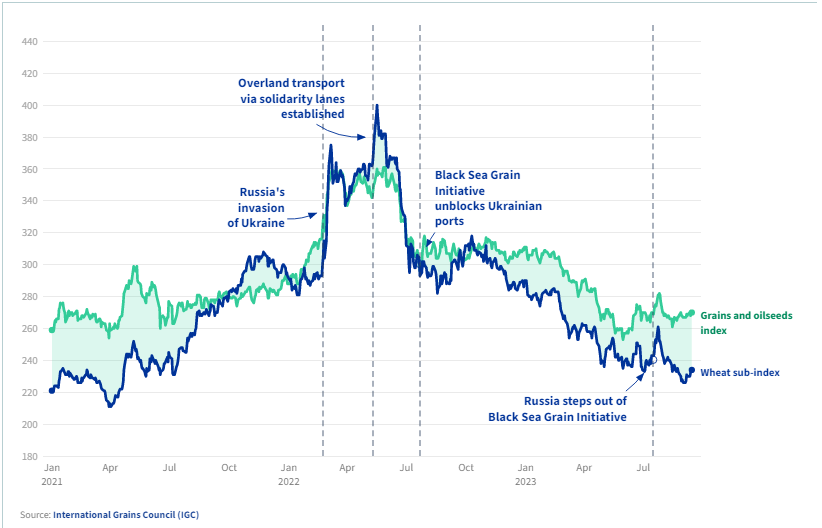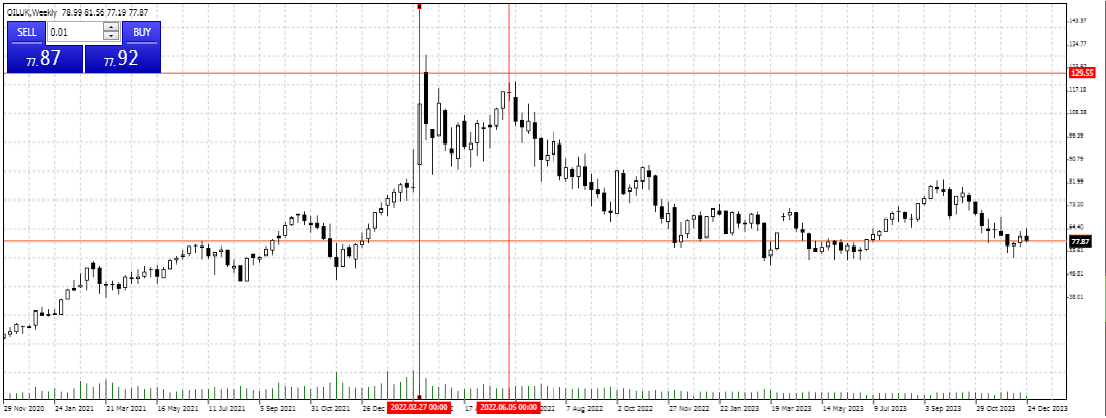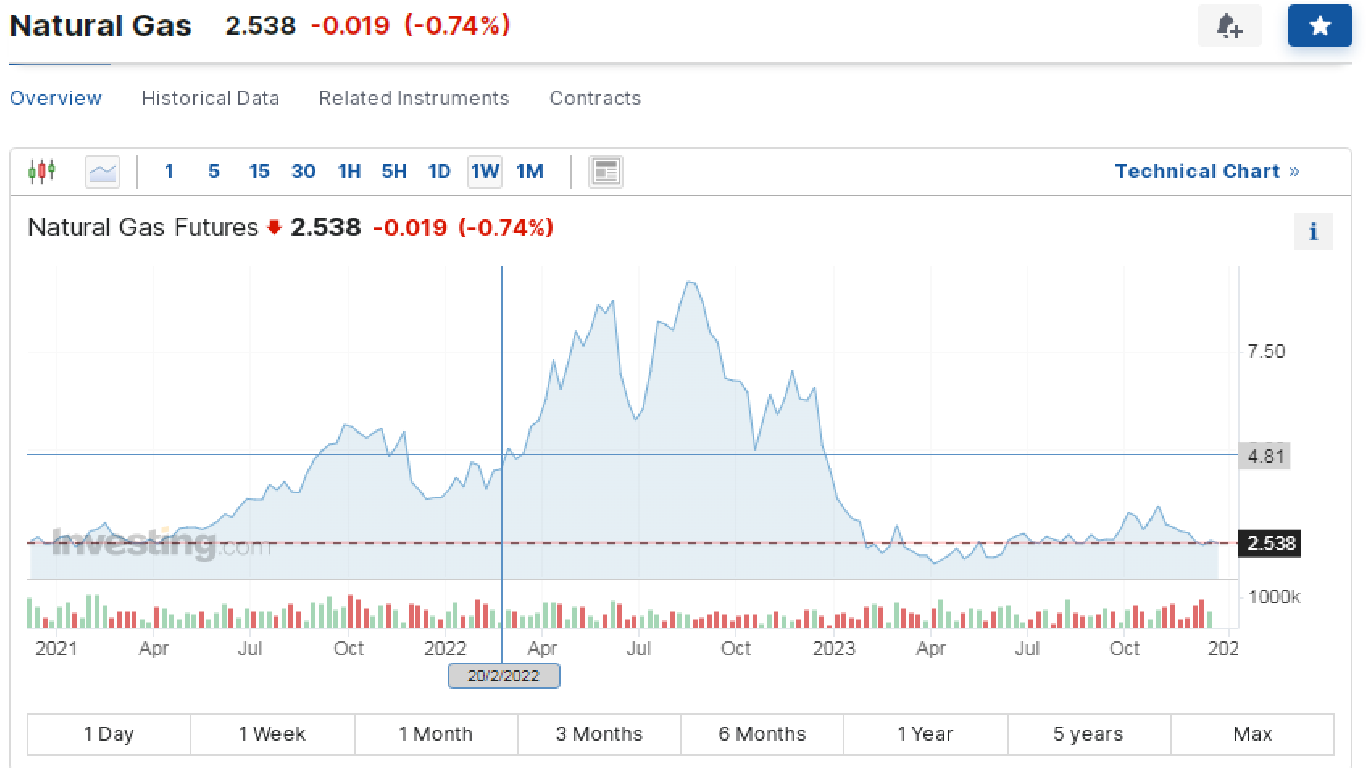|
|
TODAY.AZ / Business
Grain & energy prices fall below it was before Russo-Ukrainian war
30 December 2023 [08:30] - TODAY.AZ

By Azernews
The world is gradually adopting the consequences of the Russian-Ukrainian war. Since Russia is one of the main fossil fuel exporters; and in addition, these two countries are one of the main producers of several agricultural products such as grain, sunflower oils, etc. which are used daily, the whole world was alarmed when the war broke out between them. Everybody feared the war would push the prices up. Besides, the West poured oil on the fire and imposed strict sanctions on Russia. In return, Russia halted the export of some agricultural products, especially grain and sunflowers, to "unfriendly" countries and by blocking Ukrainian ports, did not allow the country to export its agricultural products through the sea, as well.
As a matter of course, given all of the above mentioned, the global markets reacted to the expectations, and food and energy prices soared. Strictly speaking, the war was a big blow to the whole world, but developing and underdeveloped countries suffered more than others. Following the outcries and criticism, in July 2022, there was an agreement between the United Nations, Türkiye, and Russia to allow exports of Ukrainian grains under the name of the Black Sea Grain Initiative via a safe maritime humanitarian corridor in the Black Sea. However, the lifespan of the Initiative was short and Russia suspended it in July 2023. Over 1,000 ships full of grain and other foodstuffs left Ukraine for the said one year.
However, before the third year of the date of commencing the war, the food prices and energy prices have been reined.
Following the breaking-out of the war, the indices of grain skyrocketed from 320 and reached 400 in May 2021. Then started gradually decreasing and reached 234 in September 2023, which is lower than it was before the War. Frankly speaking, in July 2022, on the eve of the Black Sea Grain Initiative agreement, the grain index returned to its before-war places. After the implementation of the initiative, the index declined further to 266. When Russia suspended the initiative, everyone expected that the index would hike again. The markets reacted to the expectation and the index increased but did not exceed 281.

Similar occurrences in oil prices and gas prices have been observed as well. With invasion oil prices skyrocketed from $96 to $125. However, after two months the prices started gradually to decrease and currently, the prices account to $70-80 which is even below the prices before the war.

As for natural gas prices, it took a longer time to reverse the before-war prices. In 2023, the natural gas prices totaled lower than before-war prices.

Speaking to Azernews on the issue, Dean Shmuel Elmas, an analyst and expert on Geopolitics and Energy from Tel-Aviv, Israel, noted that Russia wanted to retaliate EU and to hurt it from the inflation side, but it did not work. Because, first up, there are the biggest grain producers and exporters in Europe, such as France, Germany, and Romania. Secondly, the EU purchases Ukrainian grain through ground roads and does not need marine routes. Third, due to the war, Ukraine does not produce as much grain as it used to do before the war. Russian measures against the EU did not hurt so hard, inflation was reined.
“The EU inflation stood at 3.6 percent in October, much less than 11.5 percent in October 2022. The EU understood how to live with fewer Russian carbon fossils. They found the rift solutions for grain imports. Moreover, on the world level, we see the U.S. crude production on historic records and the Oil benchmarks, Brent and WTI, on a very low level. The whole Western world figured out that the only energetic solution for the long run is renewable energy. We may see an upward trend in Eurozone inflation, but I don't see any way that it would become some kind of crisis. The only economic crisis that we would see” will be in Ukraine and Russia.
URL: http://www.today.az/news/business/243159.html
 Print version
Print version
Connect with us. Get latest news and updates.
See Also
- 30 December 2025 [18:31]
bp publishes draft environmental impact assessment for ADUA seismic survey - 29 December 2025 [14:03]
SOCAR reps participate in strategic knowledge exchange program with Germany’s Uniper - 29 December 2025 [08:30]
Capacity building in assistive technology supports inclusive health [INTERVIEW] - 28 December 2025 [14:31]
Azerbaijan sees weekly jump in gold prices - 28 December 2025 [13:28]
Weekly review of Azerbaijani oil prices - 28 December 2025 [10:20]
Total of 1,218 individuals involved in employment measures for social adaptation - 27 December 2025 [14:46]
Azerbaijan allocates 9 mln manats for free legal aid next year - 27 December 2025 [11:55]
SOCAR advances redevelopment project for Bahar and Gum-Deniz fields - 26 December 2025 [14:50]
Azercell expands functionality of the Kinon - 25 December 2025 [15:55]
Student Loan Fund announces partial forgiveness for 2,360 graduates
Most Popular
 The inconvenient truth: who actually owns the road through Meghri
The inconvenient truth: who actually owns the road through Meghri
 Azerbaijan observes Lawyers' Professional Day
Azerbaijan observes Lawyers' Professional Day
 Jubilee event marking 75th anniversary of Professor Ibadulla Aghayev held in Baku
Jubilee event marking 75th anniversary of Professor Ibadulla Aghayev held in Baku
 Kevin Durant scores 30 points to lead Rockets to dominant win over Cavaliers
Kevin Durant scores 30 points to lead Rockets to dominant win over Cavaliers
 Capacity building in assistive technology supports inclusive health [INTERVIEW]
Capacity building in assistive technology supports inclusive health [INTERVIEW]
 World Azerbaijanis Solidarity Day celebrated in Tashkent
World Azerbaijanis Solidarity Day celebrated in Tashkent
 Azerbaijan Defense Ministry presents review of events of last week [VIDEO]
Azerbaijan Defense Ministry presents review of events of last week [VIDEO]
